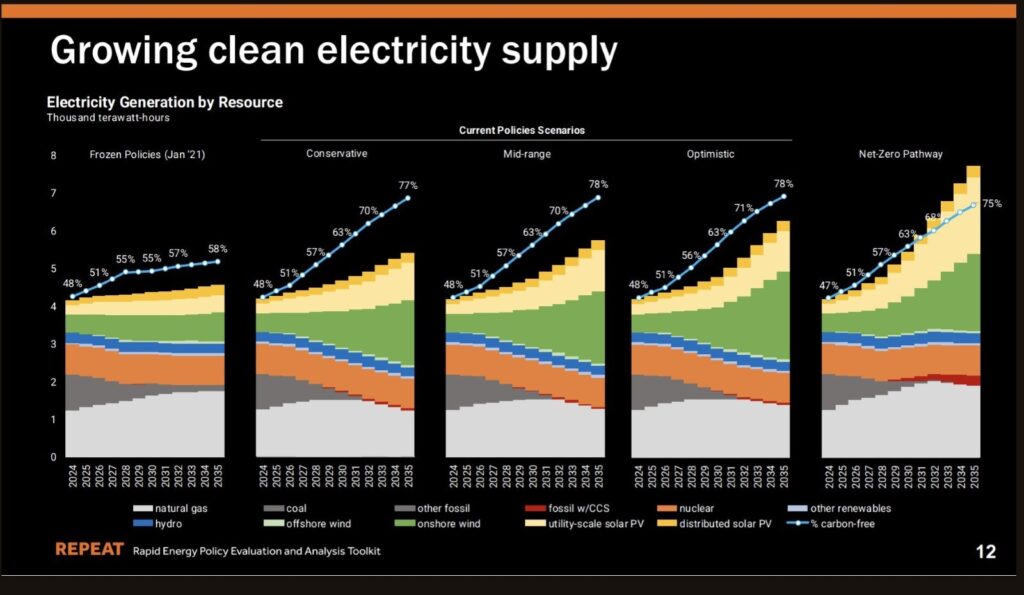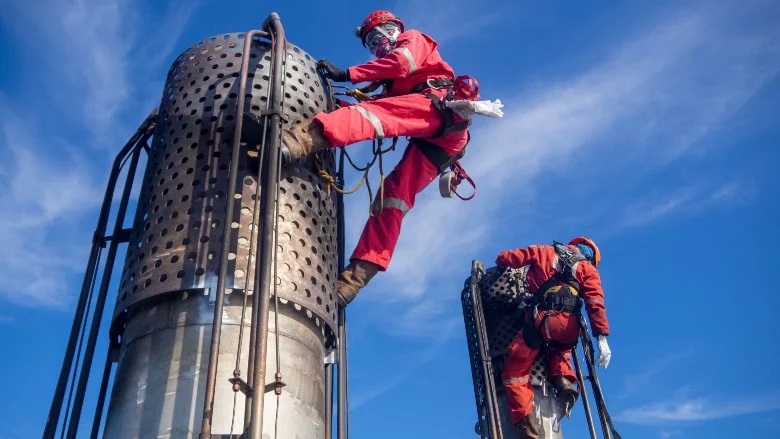






In a recent analysis, Gwyn Morgan argues that natural gas, rather than nuclear energy, is the most practical solution for addressing North America's energy needs. He highlights that nuclear power faces significant challenges, including high costs, substantial risks, and long lead times. For instance, Microsoft’s plan to restart the Unit 1 reactor at Three Mile Island is projected to cost $1.6 billion and take four years to complete. Additionally, the first small modular reactor (SMR) in Western Canada is not expected to be operational until 2034, underscoring the delays that nuclear energy projects encounter [994e76fb].
Currently, natural gas accounts for approximately 40% of electricity generation in the United States. Morgan emphasizes that natural gas is abundant, flexible, low-risk, and affordable, producing less than half the carbon dioxide emissions of coal. This makes it a vital component in supporting renewable energy integration, which is crucial for the energy transition [994e76fb]. Critics of natural gas often overlook its significant role in reducing greenhouse gas emissions and bolstering economic growth. The ongoing energy crisis in Europe further underscores this importance, as countries like Germany increasingly rely on natural gas while phasing out nuclear power [994e76fb].
However, a recent report highlights that the U.S. is set to expand natural gas power plants significantly, with 80 new gas-fired plants expected by 2030, adding 46 gigawatts of capacity. This expansion is driven by the rising energy demands of artificial intelligence (AI), with electricity consumption from AI forecasted to triple by 2028. Notably, Entergy plans to build three gas plants costing $3.2 billion to support Meta's AI data center [1822e97c]. This boom in natural gas threatens President Biden's climate goals of halving greenhouse gas emissions by 2030 and achieving a carbon-free grid by 2035, as U.S. gas power plants emitted over 1 billion tonnes of CO₂ in 2024, marking a nearly 4% increase [1822e97c].
Recent findings from Princeton University support the argument for natural gas, indicating that its electricity generation is expected to grow significantly into the 2030s, even under a Net-Zero scenario. This reflects a shift from earlier predictions that anticipated a decline in natural gas usage. Richard Meyer from the American Gas Association noted that despite the rapid growth of renewable energy, natural gas remains essential due to its lower emissions compared to coal and its affordability [1bbcc9bc].
In 2023, U.S. energy consumption decreased by about 1% compared to the previous year, while GDP increased by 2.9%. Notably, coal consumption fell by 17%, and natural gas continues to play a critical role in supporting renewable energy by providing reliable baseload capacity [5cf18231].
At the state level, trends show a divide: 11 states have successfully reduced fossil energy consumption while increasing non-fossil energy sources, whereas another 11 states have increased fossil energy usage, primarily due to the closure of nuclear power plants [5cf18231].
In Nigeria, the government faces pressure to reduce gas emissions, particularly in light of new European Union regulations that impose methane emissions limits on fossil fuel imports starting in 2030. Despite the introduction of the Nigerian Gas Flare Commercialisation Programme, gas flaring remains a significant issue, with Nigeria ranking among the top methane-emitting countries globally [3c0c5740].
To address these challenges, Nigeria has partnered with NIGUS International and Beijing Zhogmin Xinjunlong New Energy Technology Company Limited to convert flared gas into Gas-to-Liquid (GTL) synthetic diesel and Liquefied Natural Gas (LNG) for export, aligning with President Bola Tinubu's directive to end gas flaring and promote sustainable energy production [01b25d12].
In the context of the broader energy transition, Susan Tierney discusses the ongoing role of fossil fuels in the U.S. over the next decade. The report 'Accelerating Decarbonization in the United States' emphasizes that while coal production is declining, the outlook for oil and gas remains uncertain. Liquefied natural gas exports have surged since Russia's invasion of Ukraine, highlighting the complexities of balancing climate goals with energy security [3a0694fb].
The report also addresses the impact on communities dependent on fossil fuels, particularly in states like Texas, Pennsylvania, and Wyoming, and recommends expanding support for these communities while planning for utility transitions. Political challenges and differing perspectives among utilities regarding the transition further complicate the energy landscape [3a0694fb].
As the global energy landscape evolves, the interplay between natural gas growth and emissions reductions remains a critical focus for policymakers and industry leaders. The developments in both the U.S. and Nigeria illustrate the complex dynamics of transitioning to a cleaner energy future while ensuring economic viability and energy security.